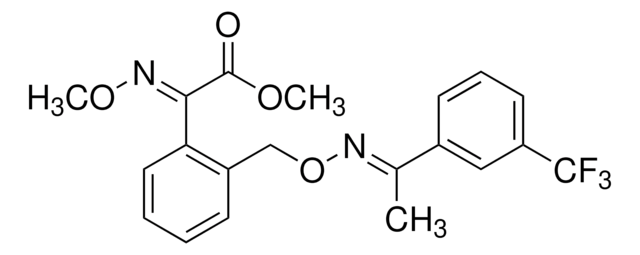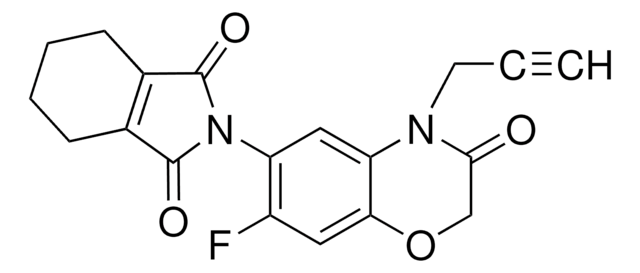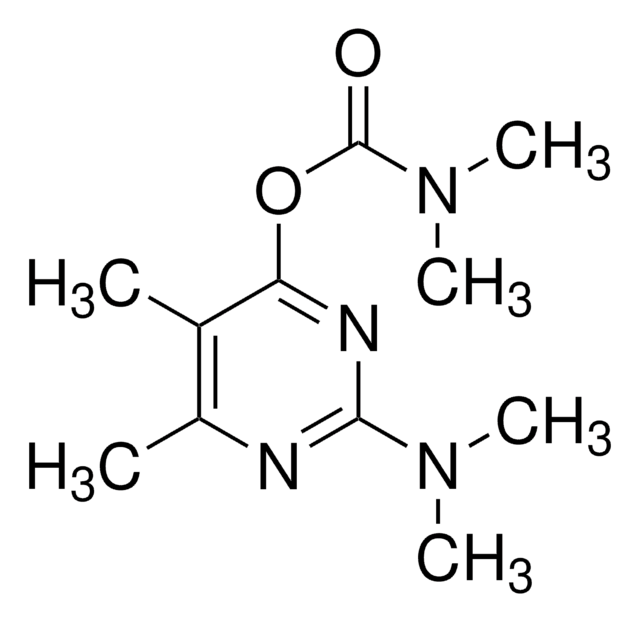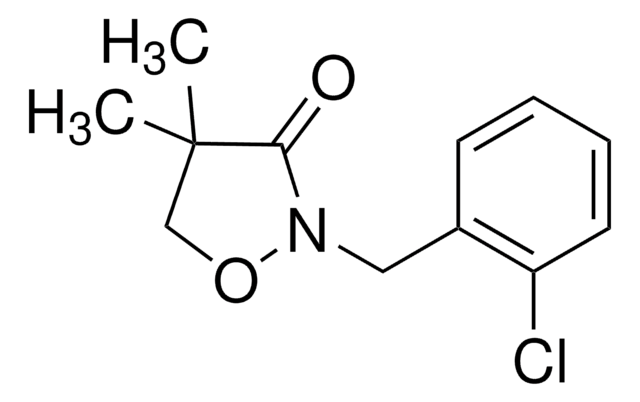33658
Picoxystrobin
PESTANAL®, analytical standard
Synonym(s):
Methyl (E)-α-methoxymethylene-2-(3-trifluoromethyl-2-pyridyloxymethyl)phenylacetate
About This Item
Recommended Products
grade
analytical standard
Quality Level
product line
PESTANAL®
shelf life
limited shelf life, expiry date on the label
technique(s)
HPLC: suitable
gas chromatography (GC): suitable
application(s)
agriculture
environmental
format
neat
SMILES string
CO\C=C(/C(=O)OC)c1ccccc1COc2cccc(n2)C(F)(F)F
InChI
1S/C18H16F3NO4/c1-24-11-14(17(23)25-2)13-7-4-3-6-12(13)10-26-16-9-5-8-15(22-16)18(19,20)21/h3-9,11H,10H2,1-2H3/b14-11-
InChI key
IBSNKSODLGJUMQ-KAMYIIQDSA-N
Looking for similar products? Visit Product Comparison Guide
Related Categories
General description
Application
- Honeybees using acetonitrile-based extraction followed by dispersive solid-phase extraction (d-SPE) cleanup and gas chromatography−tandem quadrupole mass spectrometry (GC−MS/MS).
- Foodstuffs by liquid chromatography (LC) combined with MS/MS, atmospheric pressure chemical ionization (APCI) and electrospray ionization (ESI).
- Paddy field water by direct injection using LC coupled with quadrupole-linear ion trap (QqLIT)-MS.
- Maize by acetonitrile-based extraction with dispersive liquid−liquid microextraction (DLLME) followed by GC-MS.
Legal Information
signalword
Warning
hcodes
Hazard Classifications
Acute Tox. 4 Inhalation - Aquatic Acute 1 - Aquatic Chronic 1
Storage Class
11 - Combustible Solids
wgk_germany
WGK 2
flash_point_f
Not applicable
flash_point_c
Not applicable
ppe
Eyeshields, Faceshields, Gloves
Choose from one of the most recent versions:
Already Own This Product?
Find documentation for the products that you have recently purchased in the Document Library.
Customers Also Viewed
Our team of scientists has experience in all areas of research including Life Science, Material Science, Chemical Synthesis, Chromatography, Analytical and many others.
Contact Technical Service

















